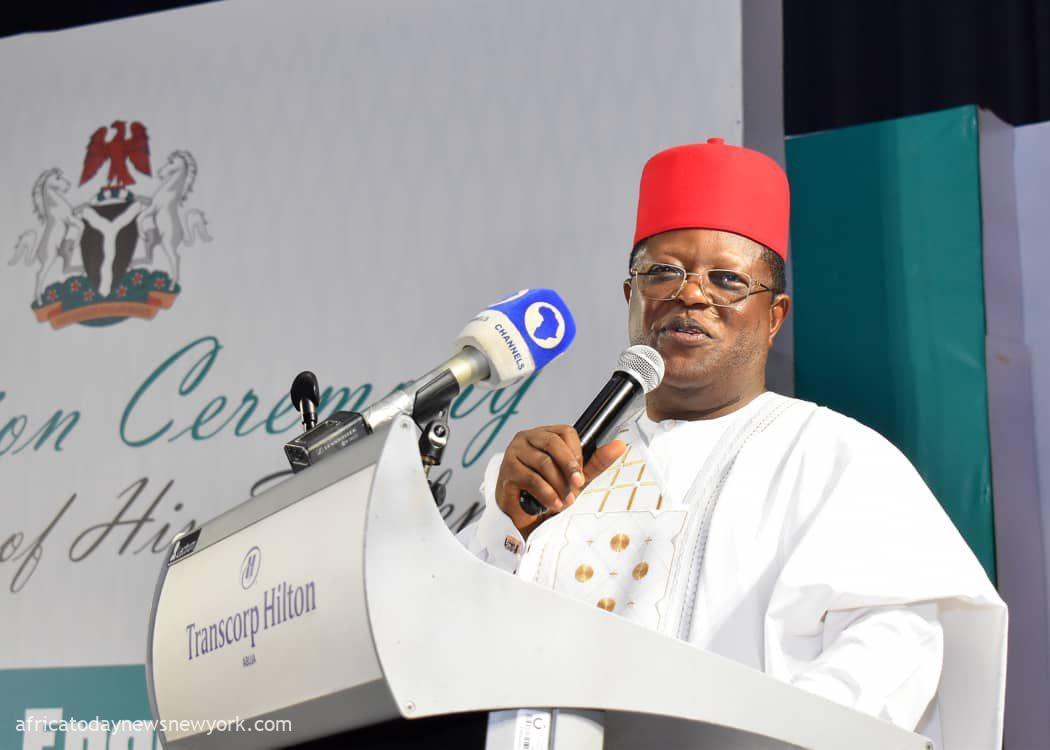Nigeria’s Minister of Works, David Umahi has clarified that shanty dwellers and caravan owners along the shorelines of the Lagos-Calabar 700-kilometre coastal road project will not be paid any compensation by the federal government, stressing that, only those with permanent structures will be compensated during the cause of demolition.
Umahi gave this clarification yesterday while addressing a stakeholders’ meeting on Lagos-Calabar highway project alongside property owners seeking compensation for the planned demolition of houses along the coastal highway project.
The minister emphasised that he took over 2,600 projects from the previous government, noting that the current government appropriated the projects into the 2024 project to redesign the projects towards completion in an effort to support infrastructure milestones.
He added that the Ministry of Works has a funding gap of N2.7 trillion while maintaining that the president is committed to closing the gaps with the prudency to drive project completion across the country.
Read Also: Waterways: NIWA Owns 250m From Shoreline Point, Umahi Insists
The minister, who disclosed this during the inspection of the ongoing Lagos-Calabar coastal road project, buttressed that the project will cost a tentative sum of N15.356 trillion and will be completed before eight years.
Umahi said: “We will manifest all the projects towards completion adding that the 2024 Appropriation budget has the blueprint of the Lagos-Calabar coastal road and it is appropriated for.
“In appropriation and procurement, what is in the appropriation may not necessarily be what is in the procurement but the most important thing is that it is appropriated for and it followed with due process.
“The due process is what we did in our in-house evaluation of what we submitted. Some people said that this project is PPP (Public–private partnership), it is not PPP. It is EPC+F, which is Engineering, Procurement, Construction plus Finance. In EPC+F. There is a commitment in terms of funds from the federal government, depending on the negotiation,” he said.
Umahi stated that, “when you develop infrastructure, it brings down inflation and makes the economy viable to attract foreign direct investment around the economic corridors.”
He added that the coastal project is viable and poised to interconnect to states and stretch into the Eastern and Southern region of the country while stressing that the returns on investment of the coastal highway project will attract tourists, commerce, water transportation, factories, hotels, and real estate development.
Umahi assured that the federal government will compensate owners of facilities and structures along the coastal road project while stressing that the coastal roads belong to the government.

